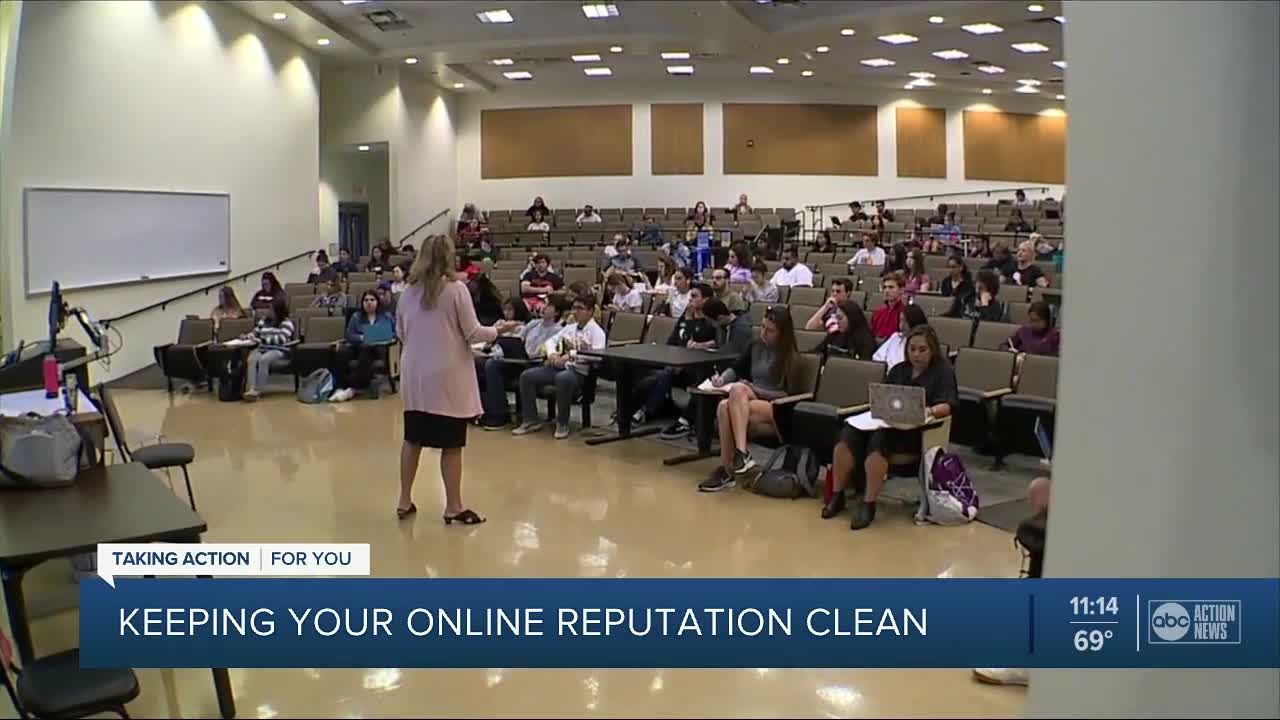Can your online presence ruin your life? A social media post from years ago can come back to haunt you and even cost you your job.
Scripps station KGTV in San Diego dug into how to clean up your online reputation even if it's too late.
If it's on the internet, it's there forever. From college photos to angry twitter rants, they can all come back to haunt you long after you click 'post.' It's becoming such a problem that Dr. Rebecca Nee devotes an entire lecture to it at San Diego State.
"Teachers and professors can sometimes be forgiving," said Dr. Nee. "But most employers are not."
Last month, a woman was fired from Panera Bread after a video revealing the secret to making their mac n' cheese went viral. Two weeks earlier, a man dominated the internet when he made a sign asking for beer money on ESPN's College GameDay. The instant fame quickly turned into backlash after so-called racist tweets he sent eight years ago came to light.
In a world always online, could you be next?
"It can keep you from getting a job; it can keep you from the career of your dreams," said Dr. Nee.
NATIONAL NEWS | The latest headlines from across the country
In San Diego, a man had identity concerns when he was falsely accused of felony grand theft. The District Attorney claimed he and other employees used stolen credit cards to buy merchandise from a Go Wireless store at the UTC mall. It turned out that Go Wireless mixed him up with another man by the same name. He was booked, fingerprinted and DNA tested before the case was dismissed.
"I barely even see my son now, and the last thing I wanted to do was go to jail and not even see him at all."
But the damage to his reputation was already done with information online that may last forever. And it happens all the time. That's where the company Reputation Defender comes in.
"People are really confused about information that's out there on the internet about them," said CEO Rich Matta. "The fact that the internet never forgets."
Matta says they work on managing your reputation and your privacy.
"If there's something you don't like on page one of Google, most people are seeing it," he said.
It could end up costing you a job, a relationship, and even an approval for a loan.
"The idea is to create a network of content that is stronger than whatever is negative out there in Google's eyes," said Matta. "Therefore pushing that negative content down to page two or below in google where very few people actually see it."
But before you get to that point, try to keep it clean.
"Most employers have complete control over who they hire and who they fire," said Nee. "They can simply say, 'this is not the type of person that we wish to have working for us,' then that's all they need to say."
Even if you think it's private, it's probably not.
"Someone could easily screenshot a Snapchat photo or video, and that can be used against you in various ways," said Nee.
Just like a credit score, your online reputation carries years of information. One slip-up may be impossible to fix.
"There's always a chance when you put something in digital form that it can get out there, and it can burn you in the end," said Nee.
Reputation Defender offers users a free 'Report Card' to determine the health of your online identity. You can get one for free here.
This story was originally published by Jennifer Delacruz at KGTV.



